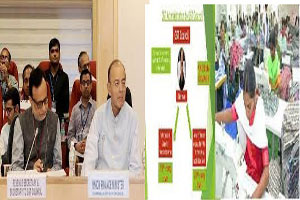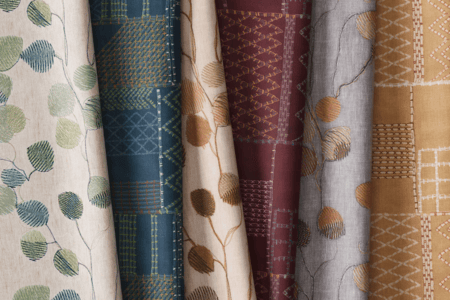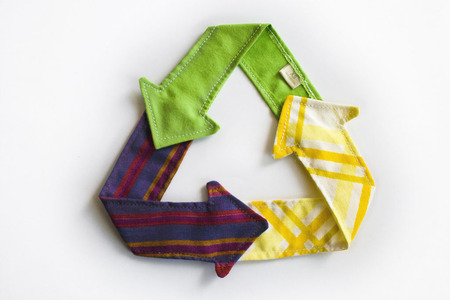
Cut in GST rates on textile jobs works from 18 pc to 5pc
YarnsandFibers News Bureau 2017-08-07 10:00:00 – New DelhiThe all-powerful GST Council, headed by Finance Minister Arun Jaitley and comprising representatives of all states in its meeting held on Saturday, decided to tax all job works from stitching, embroidery to weaving in the textile sector, at 5 percent instead of previously decided 18 percent. This 5 percent rate will be applicable for job works in apparel, shawls and carpets.
This brings smiles on the faces of merchants from Ichalkaranji — the textile town of South Maharashtra.
However, weavers are still unhappy as their demand to bring down the tax rates for procurement of synthetic fibre has remained unheeded. The business of making cloth out of synthetic fibre is at present 10% of the total textile industry. However, the GST council's reluctance to bring down the tax may affect over 200 to 300 weavers.
Vinay Mahajan, president of Yantramag Dharak Jagruti Sanghtana, said that the weavers will have to face the brunt of the GST council's reluctance. The weaver while procuring synthetic fibre will have to pay 18% tax, while it will be procured at 5% from the weaver. The weaver will get input tax credit of 5% while he has already paid 18%. Though the business of synthetic yarn is small compared to cotton, the sector will face difficulties in the future.
Earlier, the government used to charge no tax for the job works which is now 5% for both cotton and synthetic fibre. The weavers used to pay 12.5% excise duty along with value added tax (VAT) which was different for different states.
Now, the tax has suddenly increased to 18%. The government has cleared that lowering of tax rates from 18% to 5% will lead to revenue loss for the government. After the GST came into effect from July 1, the merchants had stopped purchasing manufactured garment from mills for over two weeks which led to the loss of over Rs 400 crore to the sector.
Along with Ichalkaranji, the textile markets in Surat, Malegaon and Bhiwandi were badly affected as well. The merchants are happy now with the GST council's decision to bring down tax for job works from 18% to 5%.
Ugamchand Gandhi, president of Textile Merchants Association, said that their demand to reduce the tax rate on the job works has been accepted. However, their other demands such as bringing down the number of times the returns to be filled have not been accepted. The decision to reduce the rates on job work will benefit the merchants as it will now become easy to get input tax credit and easy to calculate the tax.
Revenue Secretary Hasmukh Adhia said that states will set up their respective screening committee within 15 days and the Centre will also set up the Standing Committee in same time frame. These committees would be the first point for receiving profiteering complaints.
Reduction of rate on job work relating to textile sector is a good news for the industry and would reduce the invested duty structure in the sector.
On the appeal made to industry to pass on the benefit of input credt, he said that it is good to see that the Government has taken a more consultative approach on anti-profiteering measures and for avoiding price increase. However, industry would expect a clear guideline as how the profit on account of GST needs to be computed.
Market Intelligence
Ask for free sample Report

experience
Customer Base
dedicated team
Countries Served Worldwide









